On Sundays, if you walk through the doors of St. Peter Claver Church in Lexington, Kentucky, you will hear the beautiful sound of prayerful worship sung in Swahili.
It is the music of people who have fled the horrific violence of their home country, the Democratic Republic of the Congo (DRC), and found safety in America—and a community of strength in their church.
Now, a new church is rising, fueled by a remarkable 50 percent growth in parishioners over the last 10 years. Lexington is home to more than 1,300 Congolese (more than 50 percent of whom are Catholic). At the prompting of the Diocese of Lexington’s Bishop John Stowe, O.F.M. Conv., St. Peter Claver has thrown wide open the church doors to this community. Catholic Extension Society is supporting the construction of the new church.
A place of refuge
In 1891 a chapel in Lexington was established as a place where freed slaves and their children could come to worship. It was dedicated to St. Peter Claver, the patron saint of enslaved peoples and interracial justice. He is frequently pictured standing on broken chains.
Thus, St. Peter Claver Church became the first Roman Catholic parish for the Black community in the Diocese of Lexington. In 1947 construction began on the original church at Fourth and Jefferson streets. It was completed and blessed on December of that year.
The parish founders, who nurtured the light of faith as they emerged from the ungodly pain of slavery, would no doubt be proud of the community of parishioners who currently call this parish their home.
Today, St. Peter Claver is a construction site once again.
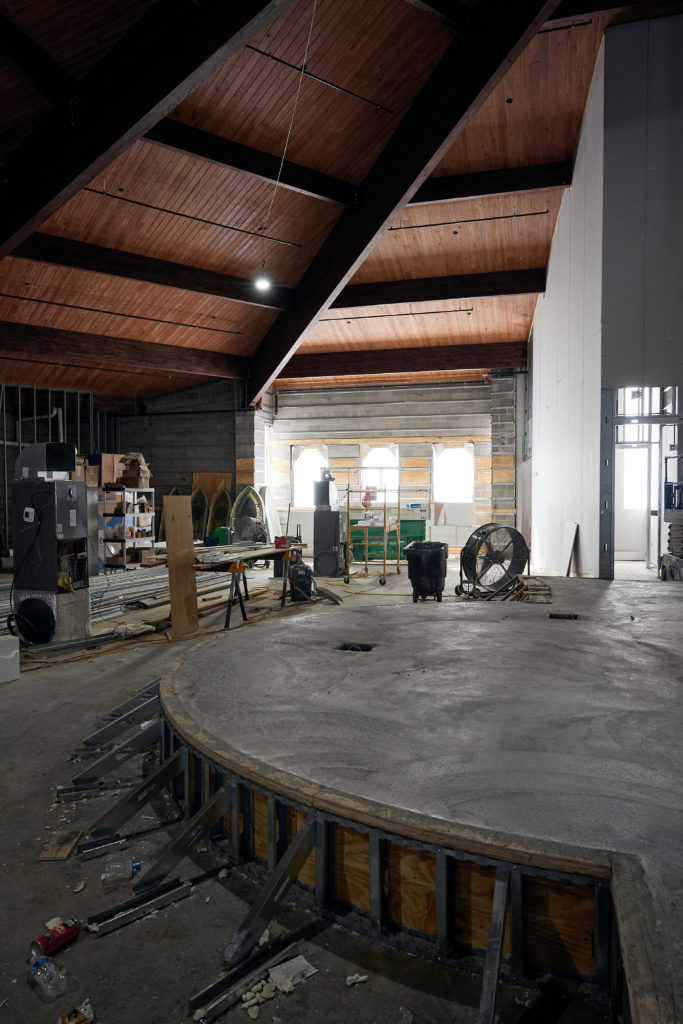
Leading this remarkable rising is Father Norman Fischer, the first Black Filipino priest of the diocese. He is the Catholic Church’s version of the Energizer Bunny. He is a whirlwind wearing a hard hat as he visits the construction site for the new church. He is in love with the people he serves.
He said,
God doesn’t ask for much. God asks for everything.”
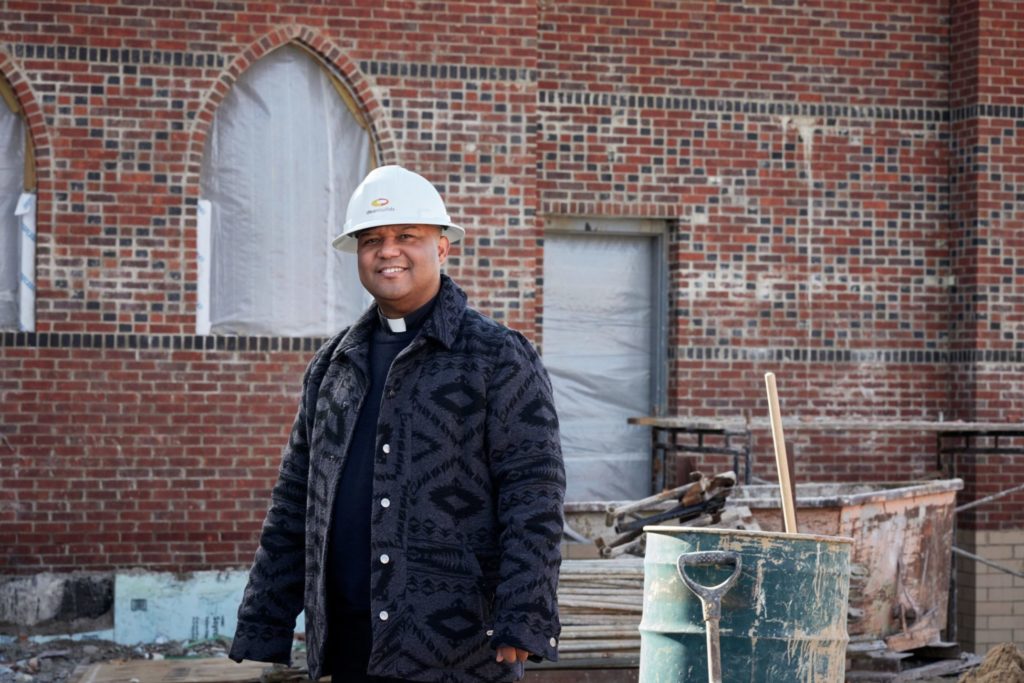
Under his leadership, St. Peter Claver is a wonderfully diverse community, home to Filipino, Korean and white families as well. Father Fischer speaks four languages: English, Spanish, enough Swahili to get by and “teenager.” He is the chaplain for Lexington Catholic High School and its 800 students, in addition to pastoring St. Peter Claver and two other rural parishes. He is fueled by lattes from the Jefferson Street Coffee shop and the Holy Spirit. He creates smiles wherever he goes.
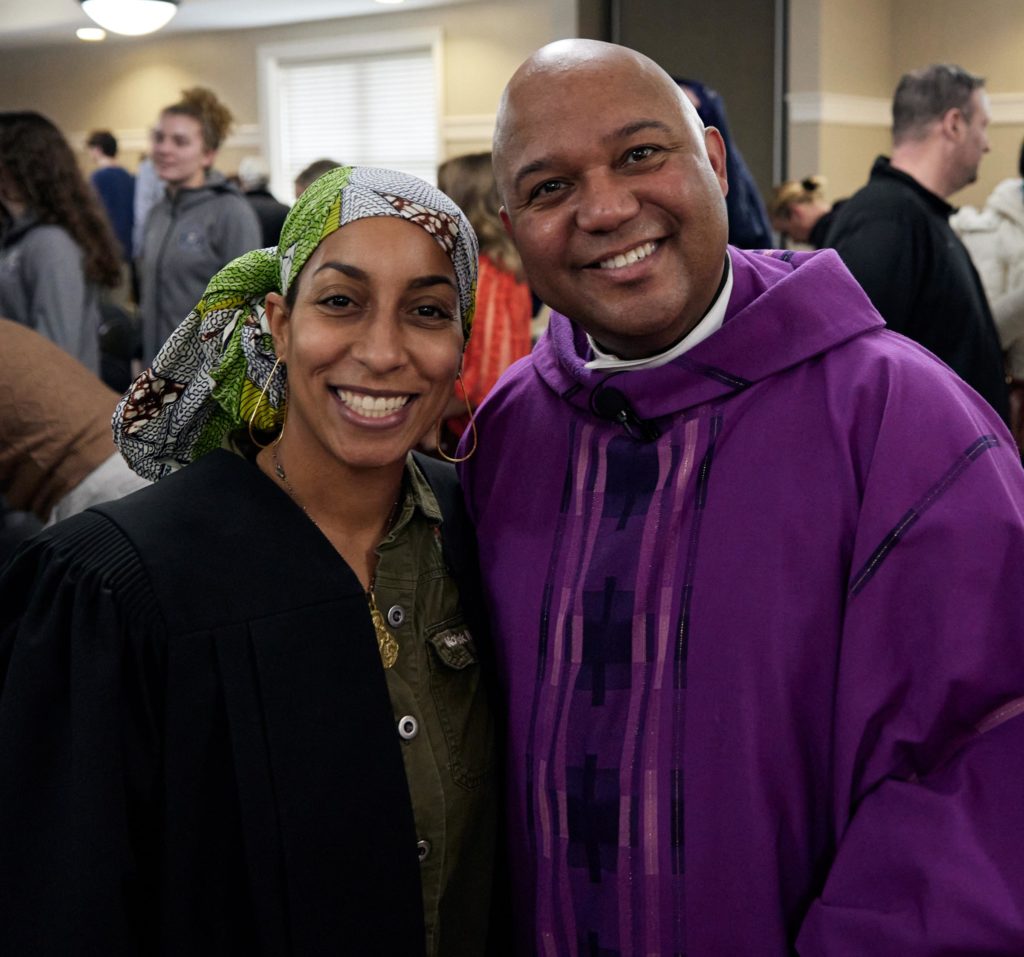
It has been the dream of Bishop Stowe, Father Fischer and the St. Peter Claver community to build a new church since 2006 when the steeple of the old church fell in. The recession, red tape, funding shortages and the COVID-19 pandemic threatened to shut down the project many times. But failure was not an option. The Congolese found a way when they fled the DRC. With Father Fischer, they would find a way once again. Construction officially began in 2022 and will be completed in April 2023.
See Father Fischer thanking Catholic Extension Society for helping to build the new church:
For the time being, parishioners pack into the crowded parish hall for Sunday Masses, which are filled with many people and lots of spirit and joy.
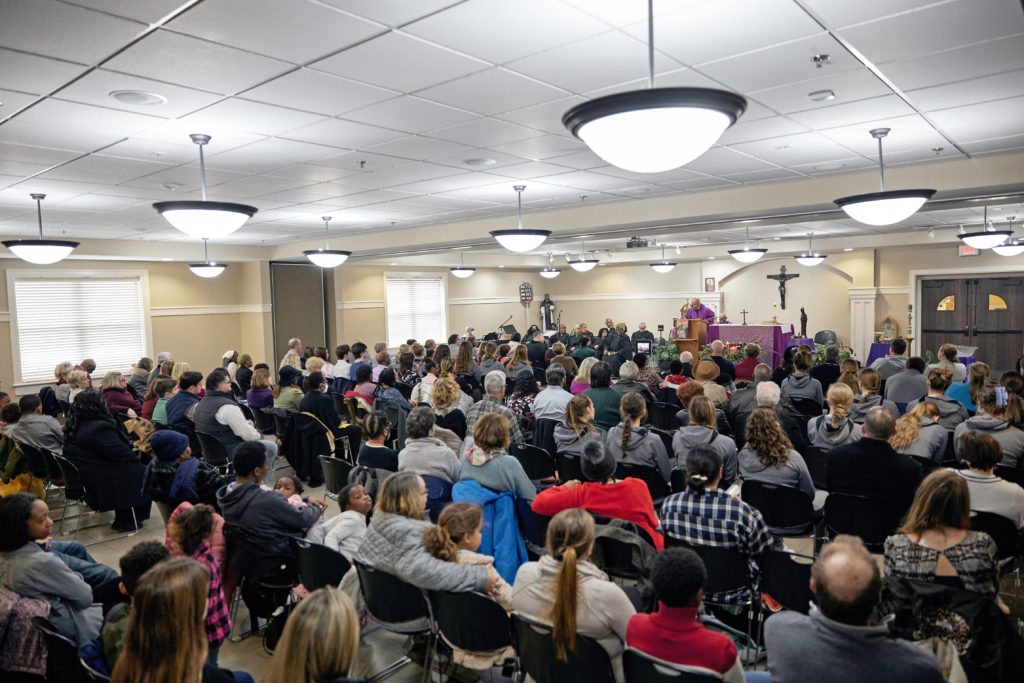
People of hope
As beautiful as the physical church will be, it will be eclipsed by the beauty of the people.
Father Fischer greets the assembly with a hearty “hello” in Swahili. “Jambo!” he says with a smile. They joyfully “Jambo!” back at him.
The choir sings in an effortless three-part harmony with calls, responses and whoops from different places in the congregation. All sway with the music driven by the percussion’s imaginative rhythms.
If they cannot be in the DRC, they can at least sound like it.
Listen to a worship song recording below:
The congregation clearly dresses up for Mass. The women wear traditional “Liputa” clothing: floor-length, elegant, and wildly colorful dresses paired with matching headdresses that rise to regal heights.
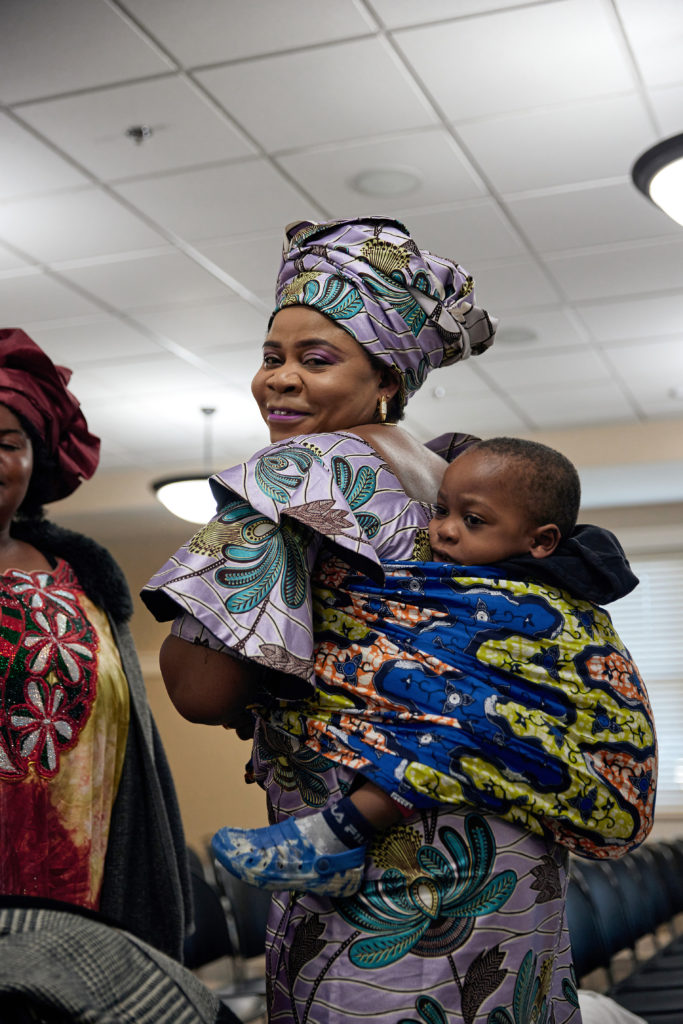
One of these women is Noelle, a choir member, board member and a lector. She plays the tambourine through the service. Noelle fled the DRC after her husband was murdered. She stayed in a refugee camp in Uganda before going to Maryland and then to Lexington. She has been in Lexington for five years. She will never go back to the DRC. But she can be at St. Peter Claver.
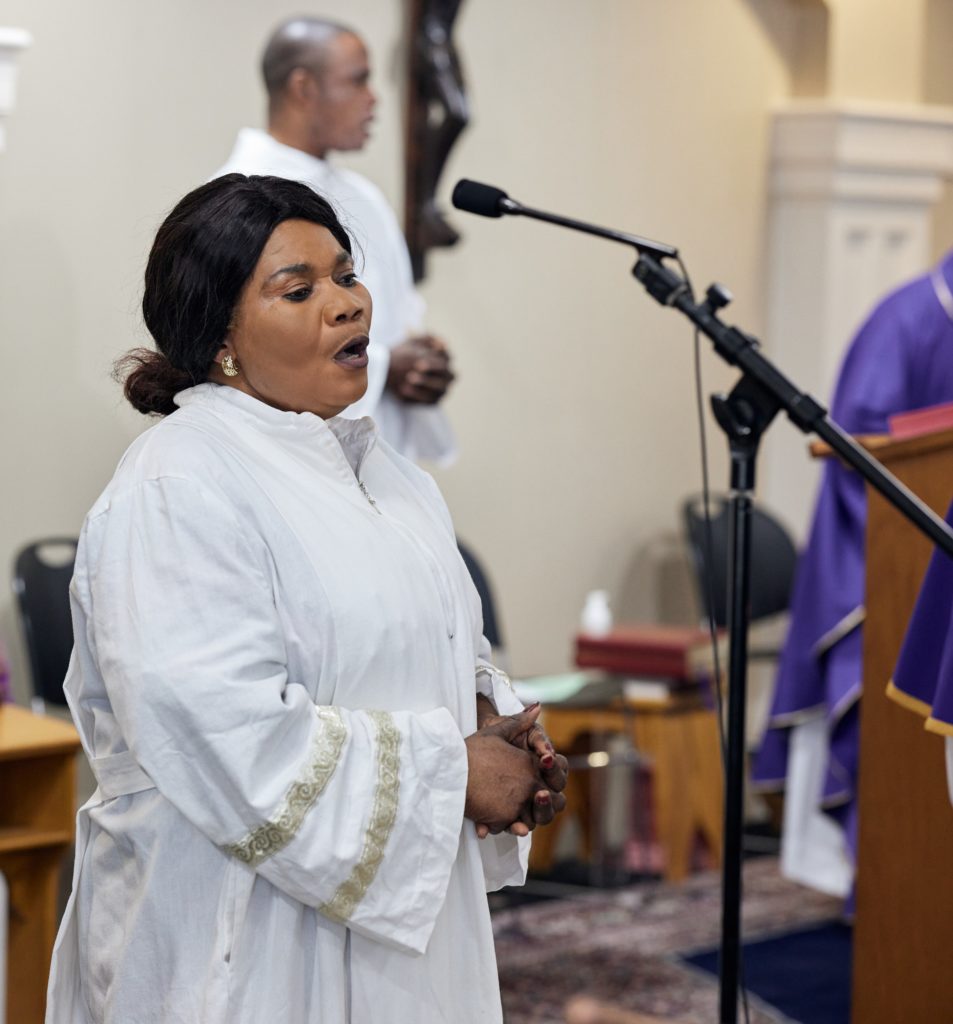
Bita Moise, wearing an electric blue suit and golden shoes, leads his wife and nine children into church.
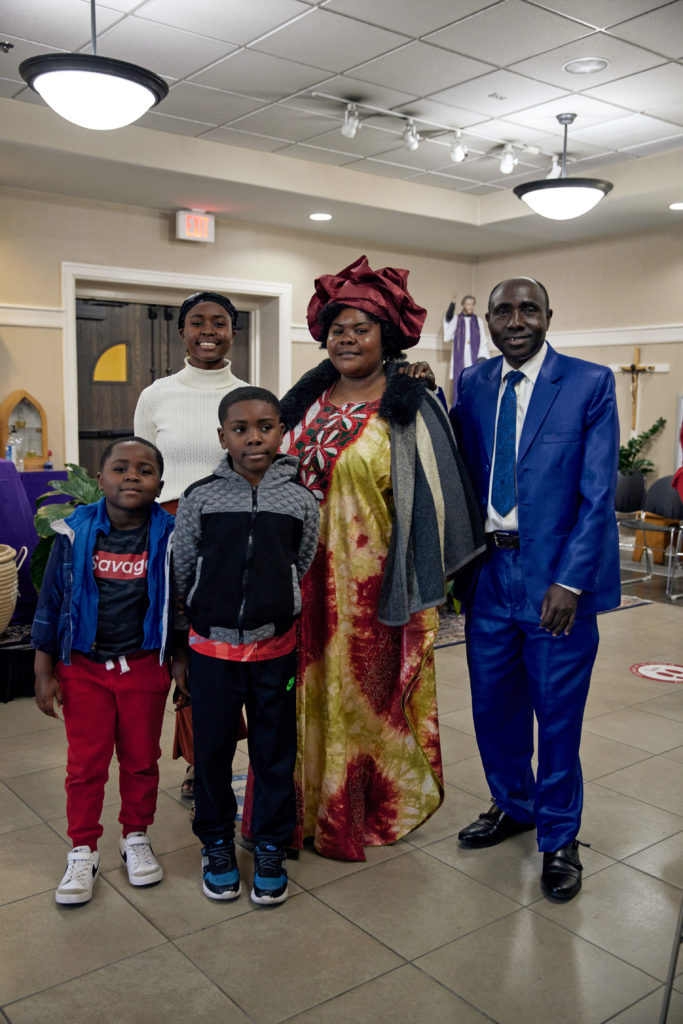
He and his family fled the DRC in 1999. His 16-year-old daughter, Shukrani, has lanterns for eyes. She has the sort of enthusiasm and focus that would make her every teacher’s dream. She is most grateful for each day’s habitual safety and the gift of education. There is no hint of adolescent cynicism in her. You could build a parish on her shoulders. In fact, they are.
Joto Mbrizi is the master catechist and a diaconate candidate. He fled the DRC after his father and brother were burned in their home. He managed to escape in the middle of the night, rowing across a huge lake and ducking gunfire from the shore. He and his five children spent 13 years in a refugee camp in Malawi. Like all refugees, he had no choice but to go forward.
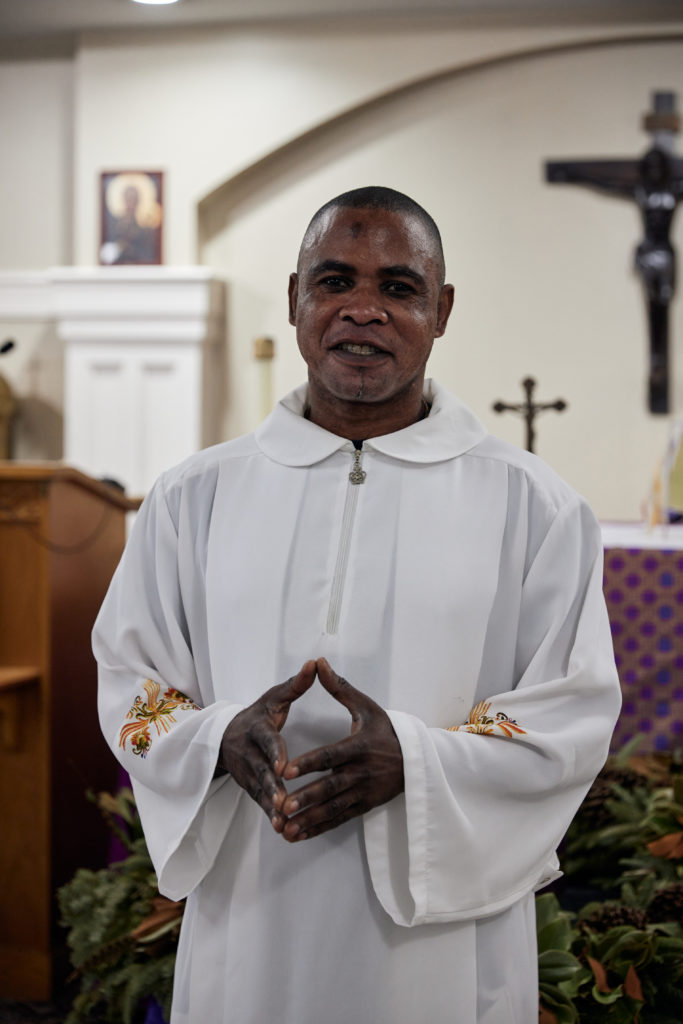
Going forward for him now is St. Peter Claver. Mbrizi beams with pride as he talks about the seven Congolese confirmation candidates and the three children preparing for first Communion.
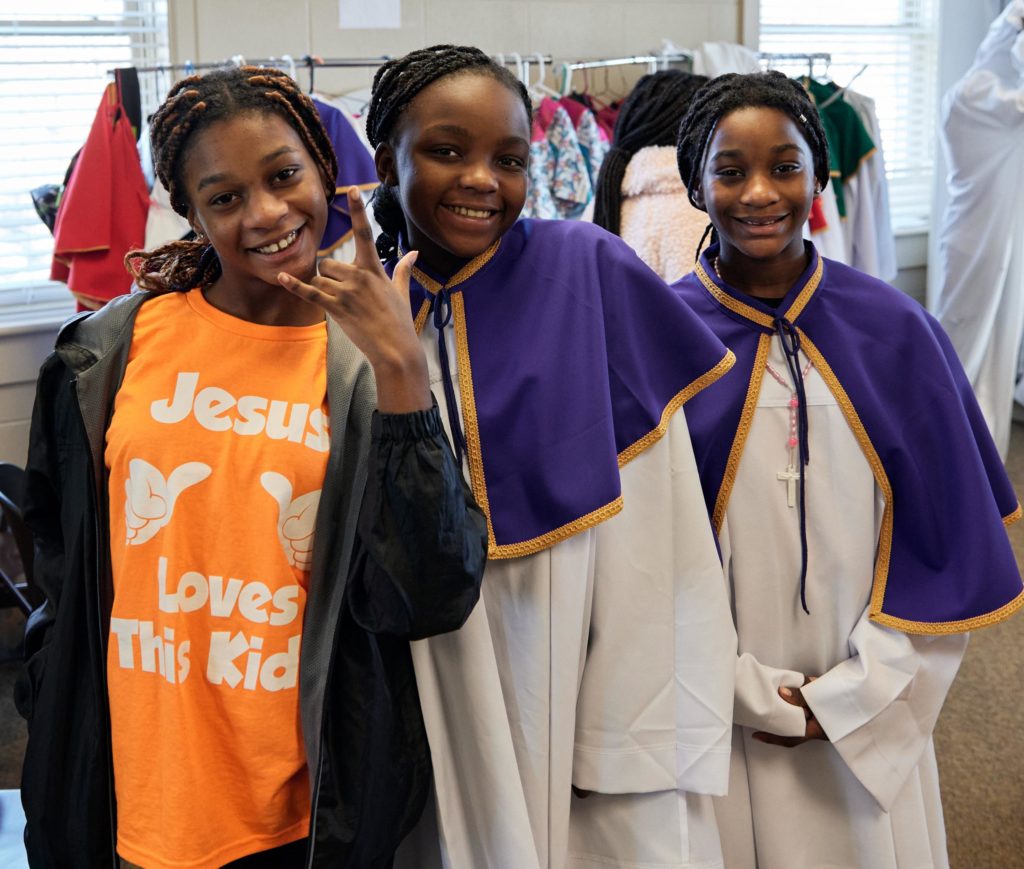
Young couples are coming back to church, drawn by the vibrancy of the community and the promise of the new church to come.
When Catholic Extension Society says we work in solidarity with people to build up vibrant and transformative Catholic faith communities, Joto, Shukrani, Bita and Noelle are exactly who we mean.
Please consider donating to help us support communities like St. Peter Claver!


